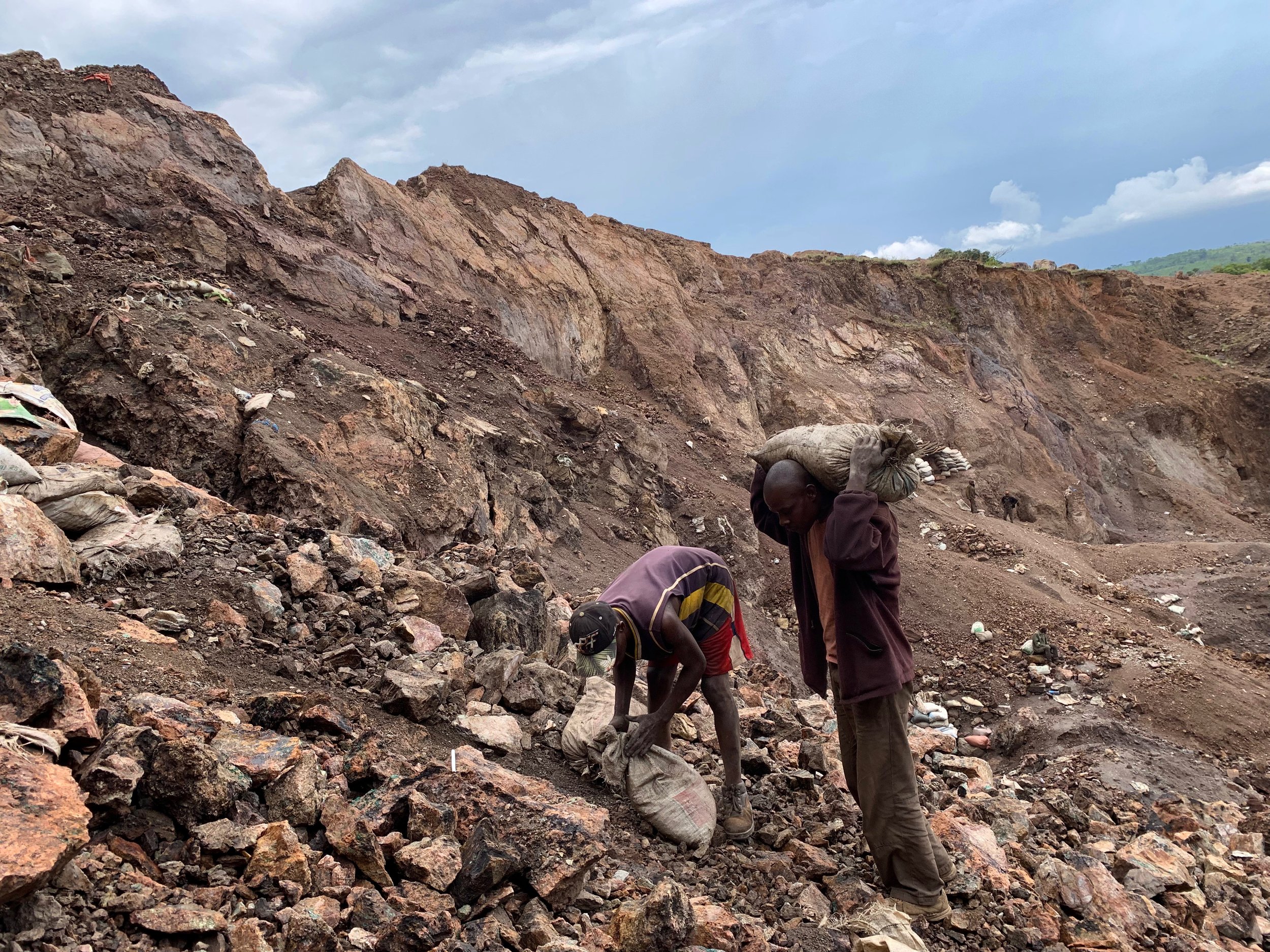Cobalt Mining Crisis in the Congo
by Michael McKenzie, Executive Director, Counterstream Media
Artisanal cobalt miners in the Democratic Republic of Congo are pictured working with little, if any, health and safety measures.
The cobalt mining crisis in the Democratic Republic of the Congo (DRC) is a complex issue characterized by severe human rights abuses, environmental degradation, and forced evictions. The DRC holds a significant portion of the world’s cobalt reserves, with Chinese companies dominating the mining and refining operations. The metal is commonly used to make lithium-ion batteries, which are found in items such as electric vehicles, computers, smartphones, and even in e-cigarettes and electronic toothbrushes.
Cobalt mining has led to exploitation, including child and forced labor, unsafe working conditions, and violations of human rights.
Forced Evictions and Human Rights Abuses
One of the significant consequences of industrial-scale cobalt mining in the DRC is forced evictions. Communities have been uprooted from their homes and farmlands to make way for mining projects, resulting in grievous human rights abuses such as sexual assault, arson, beatings, and intimidation. Multinational companies involved in these projects have been accused of disregarding legal safeguards and international human rights standards.
Impact on Communities
The expansion of copper and cobalt mines has destroyed long-established communities like Cité Gécamines in Kolwezi. Residents have been forcibly evicted or misled into leaving their homes without adequate consultation or compensation. Many have experienced a significant decline in living standards as they relocate to areas with limited access to basic amenities like water and electricity.
Environmental Degradation
In addition to human rights abuses, cobalt mining activities have contributed to environmental degradation in the region. The extraction process often involves harmful practices that pollute water sources, damage ecosystems, and threaten biodiversity. The lack of proper environmental regulations exacerbates these issues, posing long-term risks to local communities and the ecosystem.
A federal appeals court in March failed to hold five major tech companies — Apple, Alphabet, Dell Technologies, Microsoft, and Tesla — liable for their alleged use of forced labor in cobalt mining operations. According to the plaintiffs' representative, IRAdvocates Terry Collingsworth, the ruling will likely have “destructive and probably unintended consequences,” and may encourage the five tech companies to be less transparent. But the decision “will not deter us from our mission to protect vulnerable children and ensure that multinational corporations do not benefit from forced labor and human trafficking.”


